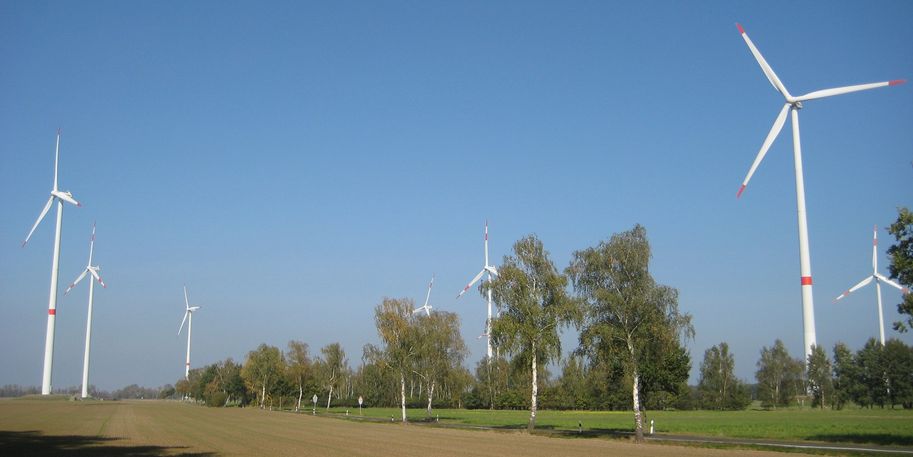Renewable energies! But where?
In Germany, the Energy Transition and the Renewable Energy Law have considerably increased the demand for facility spots and bio mass production in rural areas. It is now important for the municipalities to verify which renewable energies can best be produced on which grounds under technical, ecological, economical and acceptance-aspects. inter 3 is developing the necessary instruments together with local partners from three regions as well as the TU Berlin, the BTU Cottbus and the University of Anhalt.
Supporting reasonable ground usage for the production of renewable energies
Until 2016, the team will be researching on assignment from the BMBF in the city of Uebigau-Wahrenbrück (Brandenburg) as well as in the administrative districts of Wittenberg (Sachsen-Anhalt) und Tirschenreuth (Bayern) to answer the question how suitable spaces can optimally be used and which political processes and reforms are needed for those. The team of researchers is establishing instruments for the assessment of regional energy use and the technically, socio-economically and ecologically reasonable value generation from scarce grounds for the usage of renewable energies. Those are being imbedded into (inter-)communal political processes in order to organize the development of renewable energies in the long run in an ecological, economical and socially stable way.
Measuring potentials for usage, exploring acceptance, developing instruments for regional wealth
Concretely, an optimal ground usage in the model regions is to be supported through the development of concepts for space regulation. A geological information system (GIS) displays which areas are available for the usage of which renewable energies. An energy demand reporting procedure calculates in how far the regional energy demand can be covered by renewable energies. With the acceptance and wealth radar developed by inter 3, acceptance and wealth effects of different ground use variants for the usage of renewable energies can be gathered and evaluated comparatively. Eventually, a GIS based instrument for the usage of areas will be available for municipalities, which allows them to take part in the energy efficient value creation in the growth market of renewable energies.

![[Translate to English:] Porträt von Dr. Susanne Schön](/fileadmin/_processed_/e/4/csm_21c962_ls_weiss-50_6f400480b9.jpg)
![[Translate to English:] [Translate to English:]](/fileadmin/_processed_/3/f/csm_20180107_gefoerdert_vom_bmbf_deutsch_64c5d2497c.jpg)